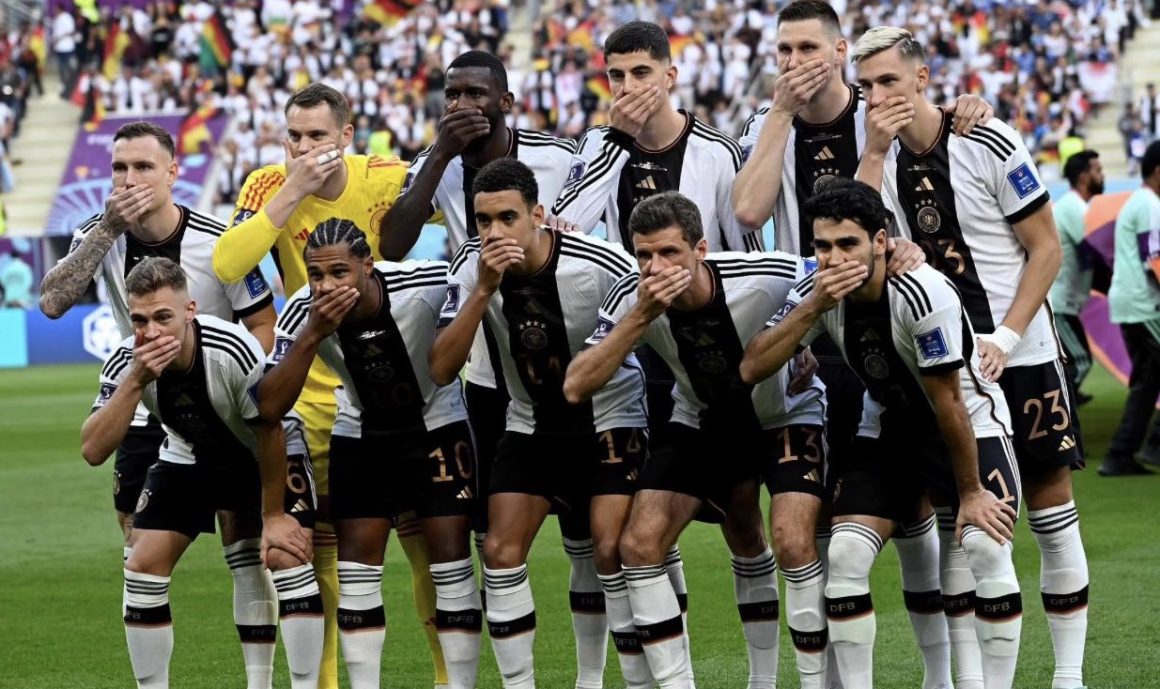Claudius Fischbach warned in a four-page long cable cited that his country’s criticism of Qatar was “wrong” and “needs to change”.
Germany’s ambassador to Qatar has urged his country to reconsider its recent criticism of Doha, warning that recent comments had caused “serious harm”.
Claudius Fischbach called on Berlin to change its strategy and improve diplomatic relations with Doha, according to a report by German news site Spiegel.
Fischbach said in a four-page long diplomatic cable cited by the Spiegel that his country’s current way of treating Qatar was “wrong” and “needs to change”.
“Germany has experienced a significant confidence bonus in Qatar in recent years,” the diplomat said, warning that the trust has been lost following comments made by Berlin officials in the past few weeks.
The German national team’s protest gesture of covering their mouths in the team photo and Federal Minister of the Interior and Community Nancy Faeser’s wearing of the One Love bracelet during the Germany-Japan game were widely and uniformly criticised for showing disrespect to a foreign culture.
Fishbach warned that Qatar was a victim of “a bewildering media campaign that misses every anomaly and every measure” and fails to acknowledge “any significant advancements”.
Qatar a ‘serious political player’
With the recent announcement of liquid gas deliveries, Qatar has sent a political signal, the ambassador said, adding that “the current mood towards Germany in local business circles, traditionally pro-German, is described to me as miserable.”
As a “serious political player”, Qatar carefully considers its strategic options, Fischbach said.
“We don’t need to spend much time discussing how important Qatar is to us as a pro-Western ally. The most crucial keywords are energy supply, effective conflict resolution in challenging circumstances, and dependable investment activity in Germany,” he said.
“This broad picture must not be lost in our foreign policy actions toward Qatar.”
The ambassador urged for a shift away from the confrontational approach to preserve relations.
A “very high-ranking public statement recognising the very good implementation of the World Cup so far and satisfaction with the new LNG supply agreement” is now required, he said.
Fischbach said it was critical to affirm the desire to maintain “traditionally good” relationships and to “appreciate the progress made in the human rights situation during the course of preparations for the World Cup.”
He called on Berlin to “take seriously” the intense confusion and frustration in Qatar.
Fischbach’s cable was allegedly sent out to a sizeable mailing list, which included the German chancellor and several ministries as well as more than 20 other embassies, including Baghdad and London.
Since Thursday, there has been much discussion about the “Qatar cable”, the German news site said.
On Monday, German Chancellor Olaf Scholz called Qatar’s Emir Sheikh Tamim bin Hamad Al Thani to congratulate him on the country’s hosting of the World Cup.
The two discussed prominent regional and international developments, Qatar’s News Agency reported.
